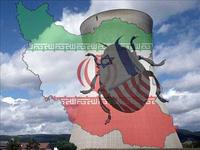-
A new threat: organized crime, terrorists links
Lawmakers and security analysts around the world are growing increasingly worried about links between terrorists and organized crime; terrorists and organized crime gangs have increasingly worked together around the world to finance operations; in 2000, it was estimated that FARC, Colombia’s largest terrorist organization, received as much as $400 million annually from its role in the drug trade; intelligence reports found that al Qaeda was looking to work with Mexican cartels to sneak into the United States; Islamic extremists have also become organized criminal networks themselves engaging in kidnapping, human trafficking, counterfeiting money, fraud, and armed robbery to raise money for their causes
-
-
New Orleans debates hurricane protection plans

The Army Corps of Engineers is currently deciding how best to implement its $2.9 billion Mississippi River-Gulf Outlet (MR-GO) restoration plan in New Orleans; the plan is part of several projects designed to protect the Louisiana coast line from hurricane storm surges; residents are clashing over the plan and the public hearing period for the plan has been extended; state legislators are currently debating with the corps, as the $2.9 billion project funds do not include the costs for land acquisition, design, and operation and maintenance; the project is expected to take ten years to complete and construction could begin as early as 2012
-
-
Federal judge denies judgment for nightmare arrest
A Long Island resident, who took a photograph alongside a public road of a mock-up military helicopter on display at Gabreski Airport in Suffolk County, was arrested in July 2009 on suspicions of terrorism; her subsequent mistreatment and the mishandling of litigation by the town of Southampton led to the filing of a $70 million default judgment which was recently denied by a federal judge
-
-
Rep. King, CBP commissioner, Nassau County executive discuss borders

A high-level meeting took place in Mineola, Long Island, earlier this week between among Representative Pete King, chairman of the House Committee on Homeland Security, Alan Bersin, commissioner, U.S. Customs & Border Protection, Edward Mangano, Nassau County executive; a spokesperson said the meeting was about the Federal government’s efforts to make U.S. borders safe while working to promote commerce and trade
-
-
Bill to protect anti-terror tipsters from discrimination suits

Three U.S. lawmakers from both sides of the aisle on Tuesday joined a growing campaign to expand protections for Americans who tip off law enforcement to potential terrorist threats from discrimination lawsuits if they identify the wrong person; their legislation is just the latest effort to win protections for tipsters of suspicious terror activities; the current U.S. legal system deters some Americans from tipping off authorities; a group of US Airways passengers were sued in 2006 after reporting six Islamic clerics who requested seat changes and asked for seat belt extenders that she said could have been used as weapons; “We cannot afford to let those who help prevent terror attacks become the targets of senseless liability suits,” said one of the sponsors
-
-
New database critical to success of "See Something, Say Something"
DHS is developing effective information sharing systems with local law enforcement agencies and federal counter-terrorism offices to ensure that its new “See Something, Say Something” campaign can function effectively; the new National Suspicious Activity Reporting Initiative (NSARI) will create a national database and processes to sort through the increasing number of suspicious activity reports (SARs) by combining three online databases and allowing local agencies to search across all systems for information without having to change existing business practices; officials hope to complete the system by September of this year; a recent planned terrorist attack in Texas was thwarted when two tips came in using the system
-
-
ME turmoil offers both problems and hope for U.S. counterterrorism efforts

In a few short weeks, popular uprisings in the Islamic world have upended counterterrorism relationships that the United States spent much of the past decade trying to build; the turmoil is a source of concern for U.S. counterterrorism officials, scrambling partnerships that have been critical to operations against al Qaeda; U.S. officials say, though, that the long-term prospect of democratic reform in the region will likely be a setback to the terrorist group, because the uprisings — and the prospect that more democratic and representative governments could emerge — will do significant damage to al Qaeda’s appeal
-
-
U.S. rebuffs Huawei fearing company is proxy of China
Last month the U.S. government rebuffed another attempt by Chinese telecom giant Huawei Technologies Co. to enter the U.S. market when it ordered the company to immediately stop its partnership with 3Leaf Systems; the government has blocked similar deals in the past; U.S. officials claim that Huawei is a dangerous extension of the Chinese government and is determined to steal state secrets; Huawei is one of China’s largest companies, providing products to forty-five of the world’s top fifty telecom operators in over 100 countries; observers believe that the U.S. government’s distrust of Huawei stems from its general frustration with cyber attacks emanating from China
-
-
House hearings on Islamic radicalization to open Thursday

Representative Peter King (R-New York), chairman of the House Homeland Security Committee, will on Thursday open hearings on Islamic radicalization in the United States; “I’m not going to give into political correctness. I’m going ahead,” King said; he plans to call several witnesses, including the uncle of a Minneapolis man who linked up with a terror group in Somalia and is believed to have been killed; he also plans to call the father of a man alleged to have killed a soldier at an Arkansas military recruiting center in 2009; the hearing has generated much debate and publicity, and the U.S. largest Muslim advocacy group and other organizations are stoking opposition to a hearing
-
-
U.S. and Israel were behind Stuxnet claims expert

Stuxnet first came to light in July 2010. Nearly 60 percent of reported infections were inside Iran; the worm targets industrial control systems, known as programmable logic controllers (PLCs), made by Siemens; Ralph Langner told a conference in California that the malicious software was designed to cripple systems that could help build an Iranian bomb; in a recent report on Stuxnet, the security firm Symantec said that it would have taken a team of between five and ten developers, six months to create the worm; Langner said that the project would have required “inside information”, so detailed that “they probably knew the shoe size of the operator.”
-
-
Boston Dynamics developing humanoid and robot cheetah
Defense Advanced Research Projects Agency (DARPA) has awarded Boston Dynamics, an advanced robotics developer, a contract to build “Cheetah,” a fast and agile robot capable of chasing and evading; the eighteen year old engineering company is also working on a humanoid robot named “Atlas” based on the design of “PETMAN,” an anthropomorphic robot for testing chemical protection clothing used by the U.S. army
-
-
"Somethings" may be clogging counterterrorism efforts

Initiatives by DHS to encourage sports fans, shoppers, and public transportation users to “Say Something” if they notice suspicious activity may be overwhelming the system and hindering our defenses, according to a policy analyst; the recent partnership between DHS and the NBA shows DHS does not plan on holding back its call for vigilance
-
-
Rebels reject talks unless Gaddafi goes

Rebels in eastern Libya have said they will not negotiate unless Col. Muammar Gaddafi quits and goes into exile; the National Libyan Council in the city of Benghazi also called again for foreign intervention to stop government air raids against the rebels; the International Criminal Court meanwhile said it would investigate Col. Gaddafi and some of his sons for crimes against humanity; President Barack Obama repeated his demand that the embattled ruler resign
-
-
Gratuitous insults: The staying power of bad ideas
The state of Tennessee will consider a bill which will make supporting Sharia law a felony; Oklahoma already has a similar measure of the books, but it is currently under judicial review; burning the Koran and declaring Sharia law to be a felony are not going to help in our war against terrorism; they will have the opposite effect; they are provocative measures which will inflame Muslims around the world; without the active support of Muslims around the world, the war against the terrorists cannot be won; one way to make sure we do not receive such support is by burning the Koran or by declaring support for Sharia law to be a felony; legislating that support for Sharia law is a felony is unnecessary; we outlaw polygamy without declaring support for Mormonism to be a felony; Hassidic Jewish men believe that they can divorced their wives simply by repeating “I divorce you” three times; we do not allow that – without declaring support for Orthodox Judaism to be a felony
-
-
In Tennessee, supporting Shariah law may soon be a felony

A Tennessee lawmaker is sponsoring a bill which would make it a felony in the state to knowingly support Shariah law; the bill, if passed, would allow the state’s attorney general to designate an entity as a Shariah organization if the organization knowingly adheres to Shariah; if the organization “engages in, or retains the capability and intent to engage in” an act of terrorism; or if the act of terrorism of the organization “threatens the security of public safety” of Tennessee residents; violations of the proposed law would be a Class B felony, punishable by fine and a prison term of up to fifteen years; a similar measure passed in November by Oklahoma voters that banned the use of Shariah law in state courtrooms was later blocked by a federal judge pending the resolution of a lawsuit calling it unconstitutional
-
More headlines
The long view
Factories First: Winning the Drone War Before It Starts
Wars are won by factories before they are won on the battlefield,Martin C. Feldmann writes, noting that the United States lacks the manufacturing depth for the coming drone age. Rectifying this situation “will take far more than procurement tweaks,” Feldmann writes. “It demands a national-level, wartime-scale industrial mobilization.”
No Nation Is an Island: The Dangers of Modern U.S. Isolationism
The resurgence of isolationist sentiment in American politics is understandable but misguided. While the desire to refocus on domestic renewal is justified, retreating from the world will not bring the security, prosperity, or sovereignty that its proponents promise. On the contrary, it invites instability, diminishes U.S. influence, and erodes the democratic order the U.S. helped forge.
Fragmented by Design: USAID’s Dismantling and the Future of American Foreign Aid
The Trump administration launched an aggressive restructuring of U.S. foreign aid, effectively dismantling the United States Agency for International Development (USAID). The humanitarian and geopolitical fallout of the demise of USAID includes shuttered clinics, destroyed food aid, and China’s growing influence in the global south. This new era of American soft power will determine how, and whether, the U.S. continues to lead in global development.
Water Wars: A Historic Agreement Between Mexico and US Is Ramping Up Border Tension
As climate change drives rising temperatures and changes in rainfall, Mexico and the US are in the middle of a conflict over water, putting an additional strain on their relationship. Partly due to constant droughts, Mexico has struggled to maintain its water deliveries for much of the last 25 years, deliveries to which it is obligated by a 1944 water-sharing agreement between the two countries.
How Disastrous Was the Trump-Putin Meeting?
In Alaska, Trump got played by Putin. Therefore, Steven Pifer writes, the European leaders and Zelensky have to “diplomatically offer suggestions to walk Trump back from a position that he does not appear to understand would be bad for Ukraine, bad for Europe, and bad for American interests. And they have to do so without setting off an explosion that could disrupt U.S.-Ukrainian and U.S.-European relations—all to the delight of Putin and the Kremlin.”
How Male Grievance Fuels Radicalization and Extremist Violence
Social extremism is evolving in reach and form. While traditional racial supremacy ideologies remain, contemporary movements are now often fueled by something more personal and emotionally resonant: male grievance.
